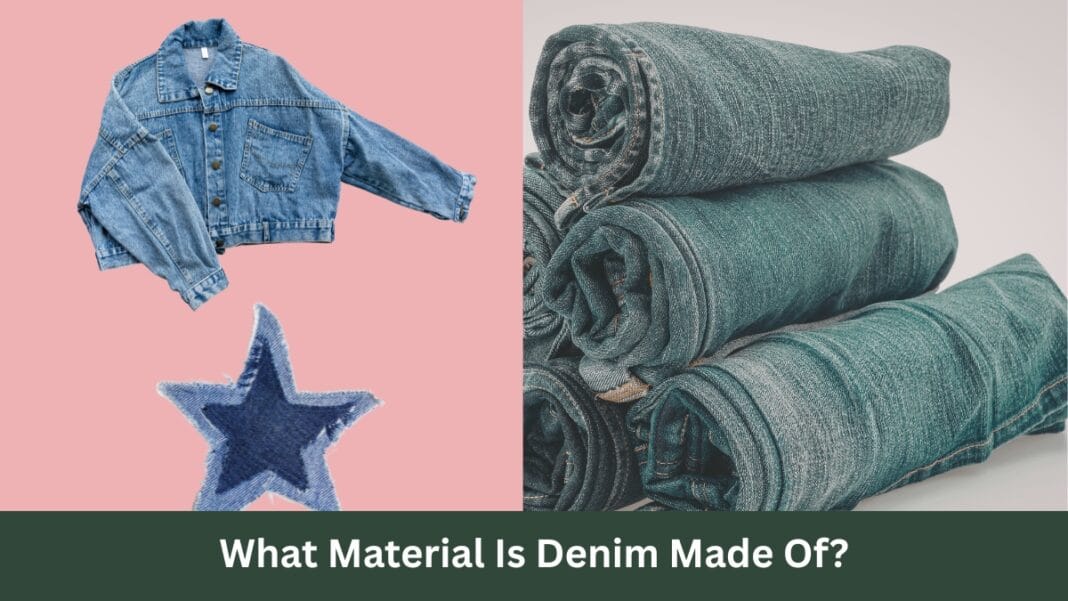Denim fabric is a timeless material that is used on a shoestring budget within the fashion and workwear industries. This is because of its unique properties and the high levels of consumer satisfaction and demand it creates. Knowing the properties, functions, and the production processes of such a perennial material is crucial. This paper seeks to provide a holistic approach of denim and its production processes. The study starts with the history of denim fabric and ends with the contemporary production processes of denim.
Table of contents
What is Denim Fabric?
Denim is more than just a material for jeans; it is an icon, a fabric with a rich history, unique characteristics, and versatile uses. From durable work uniforms to fashionable accessories, denim has been a preferred fabric for over a century. In this article, we will explore the qualities of denim fabric, its manufacturing processes, and its wide range of applications within the textile industry.
Properties of Denim Fabric:
One of the elements of denim fabric that make it easy to work with and to justify the high consumer demand and increase in fabrication is the high levels of strength and durability of the fabric. The fabric is tough, with a cotton base and a twill weave, that is able to endure high levels of use. On the contrary, original uses of the fabric, the fabric improves with age. This is contrary to the intended use cases of fabric and/or finishing of the garments. With time, the fabric becomes more malleable and easier to work with. Due to the stated reasons, denim material is heavily relied on by fabric manufacturers for the fabrication of garments such as jeans, jackets, and overalls.
There are multiple elements that lead to the sustained usage of denim within multiple fields. An analysis of the properties of the fabric creates an understanding of the industrial and fashion usage of the fabric. The properties are outlined as follows.
Softness
Softness Although considered rough and stiff initially, denim does soften over time when washed and worn regularly, and especially for high-quality denim, made from much finer cotton fibers, this softness is more pronounced and noticeable.
Breathability
Breathability As denim is made from cotton, it is also very breathable. This makes it very comfortable to wear across different weather conditions. The breathable denim fabric allows air to flow and circulate, helping your body maintain a comfortable temperature by preventing excessive body heat from building up.
Versatility
Versatility Denim is very versatile and can be used for almost anything, whether it is everyday casual clothing, high end fashion, and everything in between. It can be used for both light and heavy duty uses. With various weights and finishes available, the versatility is endless. This textile can be used across the whole spectrum of styles and purposes.
Resistance
Resistance to Wrinkling Denim is naturally resistant to wrinkling, and this makes it the best choice for items that need to keep their shape like jackets and jeans. While some denim styles may wrinkle with wear, denim is less prone to creasing compared to other fabrics.

What is Denim Made Of? The Basics
The main ingredient used to make denim is cotton, specifically cotton fibers. Once the cotton fibers are collected, they are spun into yarn, dyed (often indigo dye is used), and then the yarn is woven into the fabric. The most common fabric weave produced is referred to as twill weave. The twill weave is what gives the fabric its strength, making it long lasting. This is why the answer to the question, “What is denim made of?” is cotton. Being made from a natural fiber, denim has it’s own unique qualities. The way denim is made and the materials used is what has kept it a staple in the industry, from clothing, to workwear.
The Manufacturing Process of Denim Fabric:
Denim is known for it’s durability as a fabric, this is evident with it’s ability to retain a dye for a long period of time. Retention of dye has to do with the indigo dye, used for denim which is woven with cotton yarn before the fabric is made. This dye, being indigo has a high affinity for cotton, thus allowing it to retain its color for a long period of time. Denim Fabric Manufacturing Process To understand denim fabric manufacturing process, one needs to understand the simplicity out of complexity. In the instance of raw cotton textile transformed to finished denim, one can pick out the process of cotton being transformed to a finished product, the denim.
Step 1: Harvesting Cotton
The process of denim creation begins with the harvesting of cotton. This is done in warm climate regions with the cotton bolls fully maturing for harvesting. The ginning process separates the cotton fibers and the seeds.
Step 2: Spinning the Yarn
The separated cotton fibers are cleaned and afterwards spun into yarn to be woven into denim fabric. This spinning process entails twisting the cotton textiles into a single continuous thread, which is then dyed.
Step 3: Yarn Dyeing
The characteristic blue of denim is derived from the use of an indigo dye. The process used to dye the yarn is referred to as rope dyeing. In this technique, the yarn is continuously dipped into indigo dye until optimal color saturation is achieved. The dyeing technique used for the yarn is the most essential in establishing the unique blue color for the fabric of the denim.
Step 4: Denim Weaving
With yarn dyeing now completed, the next process is denim weaving. The yarn is woven into heavy cotton textile using the twill weave technique where the horizontal weft yarns go over and under the vertical warp yarns. This results in a denim fabric with a diagonal weave pattern. Additionally, the denim fabric is woven in a way to enhance the durability and strength of the fabric.
Step 5: Denim Finishing
After the weaving process, the denim fabric is improved by a range of finishing methods and processes. The processes used alters the fabric’s texture, visual aesthetic, and durability. The finishing processes employed to denim is as follows:
- Stone washing: This finishing process alters the hand of the denim to a softer finish with a faded visual appearance.
- Enzyme washing: This is used as a finishing process to further enhance the visual aesthetic of the denim and to further soften the fabric.
- Dry finishing: This is a finishing process where heat treatment is used to alter the finish of the denim to a crisp and smooth finish.
Step 6: Cutting and Sewing
When denim fabrication is complete, the material is divided into the requisite patterns for apparel, accessory, or home décor items. The fabric is then assembled to complete the products, including jeans, jackets, or cushions.
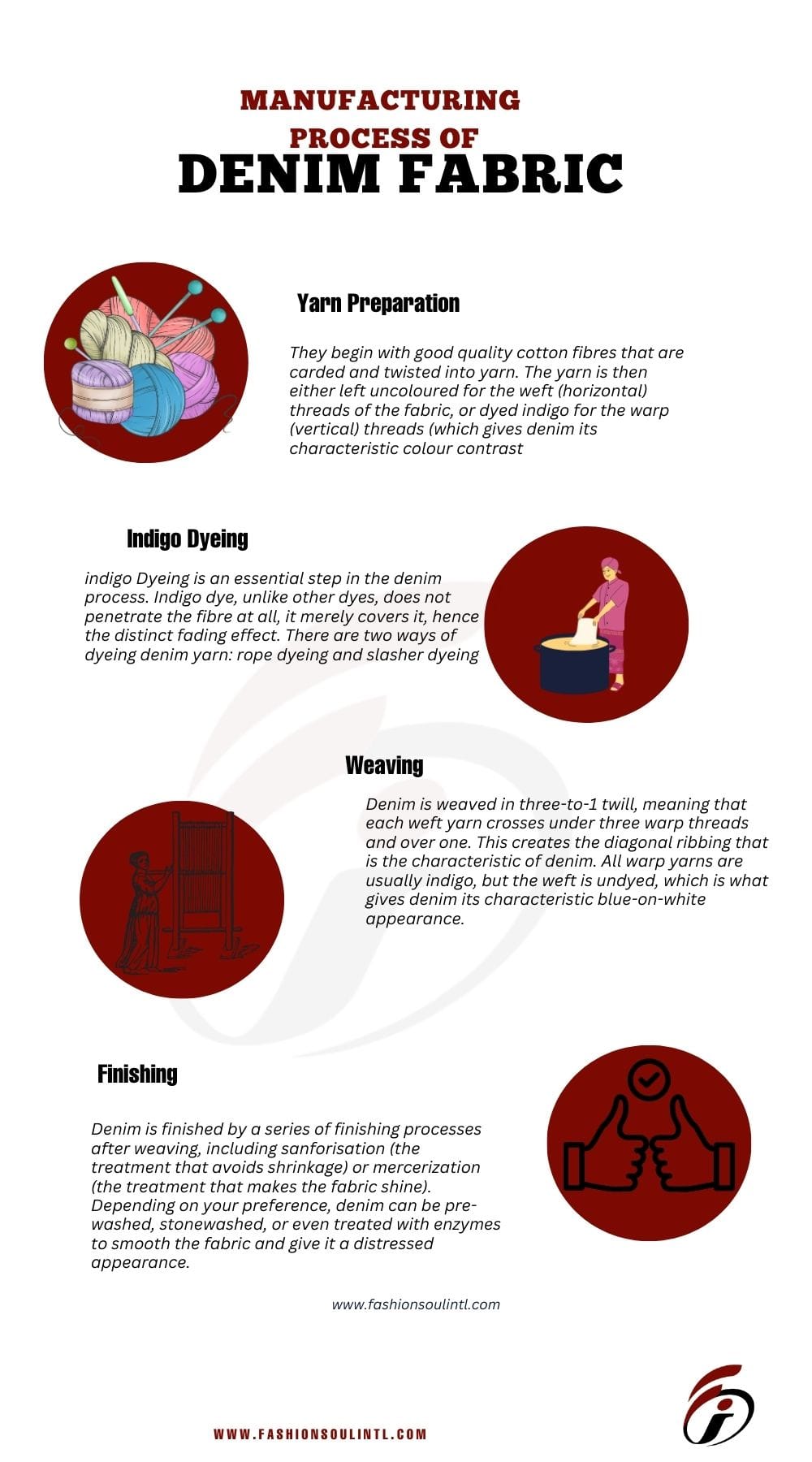
What Material is Denim Made of? The Process Behind Denim Production
It takes a long time to make denim from cotton. It takes an even longer time to harvest cotton, then it is spun into yarn, then it is dyed indigo, and then woven into denim. When you ask, “What material is denim made of?” The answer is an even longer process until it becomes denim from cotton. That is why denim is so strong, comfortable, and versatile.
Common Uses of Denim Fabric:
Denim’s versatility can be applied to all manner of things outside of jeans. Here are some of the most popular use cases
Apparel fabric
On a more basic level, we use denim to make jackets, skirts, shirts and shorts. The use of stretch denim, sometimes mixed with spandex, also brought new possibilities to slim-fitting clothes. Let’s start thedenim apparels brand.
Workwear fabric
Denim, a cotton textile closer to the skin which has been made through the twill weave hence is able to withstand wear and tear, thus making it ideally suitable for workwear. The fabric is stiffer at the time of use thus makes it difficult to withstand some loads but after some time, it loosens up as well as forms to the body contours of the person using it, therefore, enhancing its comfort ability. Also, due to the reason that denim is breathable and strong for heavy usage it can be used in tough working conditions.
Home Décor fabric
Because of its strength, denim can be used for upholstery, curtains, and even rugs. Its rugged feel and style give any space a casual, rustic look.
Accessories denim
Denim is also used for accessories like bags, hats and belts. The strength and durability of denim bags and backpacks is what really appeals to everyone.
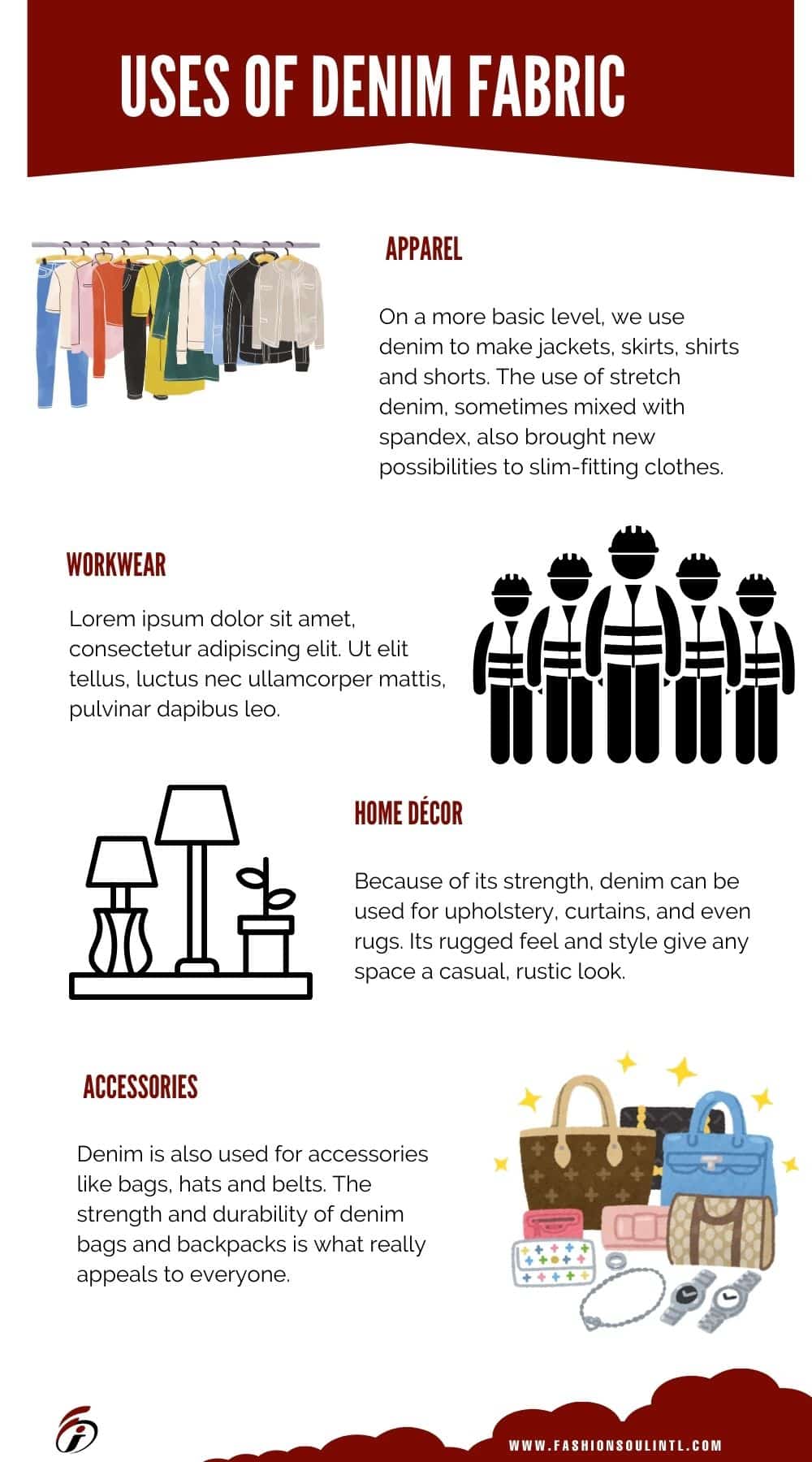
Types of Denim Fabric
Many forms of denim are created by modifying dyeing, weaving and finishing techniques. Here are some popular types
Raw Denim Fabric
Unwashed or raw denim is jean fabric which is not treated after being dyed and woven. It feels tough and hard at first, but the material provides comfort with repeated use. Generally, raw denim shrinks after the first wash since it conforms to the shape of the wearer’s body. Even more, this cloth allows for alterations, both internally and externally. It is also worn by the users who interact with the material, leaving on it gradual patterns of plays and wrinkles. Such denim is perfect for anyone who takes pride in their appearance and wears something unique. This is the reason: it makes sense in the universe of denim as an unusual and not static fabric.
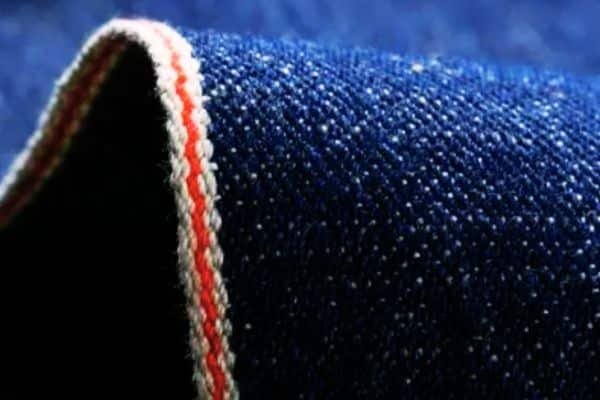
Stretch Denim Fabric
Stretch denims incorporate elastane or spandex fibers which make the material smooth and pleasant. This fabric is most commonly found in skinny jeans and other tight clothes due to its elasticity. Because of this quality, the material is very comfortable and perfect for those wearing them most of the time and during physical activities. In addition, the close fitting of stretch denim improves the shape of the body and provides a beautiful silhouette. Hence, it is no surprise that stretch denim is very popular among the fashion-oriented people who want to combine style with comfort.
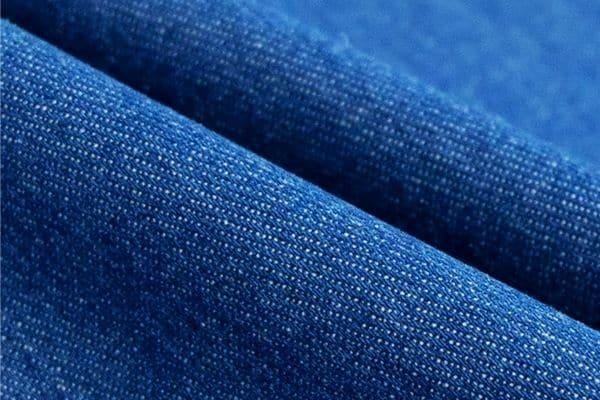
Selvage Denim Fabric
Selvage jeans are material denim made of on shuttle looms that create a narrower self-finished seam. Shuttle looms add a special touch to the weaving process since the seam emerges beautifully finished. In addition, the selvage edge, which is tightly finished, keeps and protects the seam from coming undone. Most denim lovers appreciate how each pair is crafted as the entire process is hand-made and painstakingly performed. Thus, for those who love their clothing to be both of lasting quality and beautiful design, selvage denim emerges as a clear standout.

Acid-Washed Denim Fabric
Acid-washed jeans are another denim trend that came out in the 80s, giving the jeans a more distressed look. To achieve the desired look, manufacturers use pumice stones in a bleach solution and wash the denim fabric with it. When asking “what material is denim made of,” it’s important to understand how this process adds a unique finish to denim. This puts a different spin on denim that many people find appealing. Also, the acid wash process smooths out the fabric, making it more comfortable. In the present day, people still wear acid-wash jeans as they have a vintage and punk look, representing the style of fashion in the 80s.

Most Famous Denim Brands in the World
Levi’s (United States)
Levi’s is one of the most recognized American denim brands worldwide. Founded in 1853 by Levi Strauss, the brand initially that material is denim made of a pair of durable trousers for miners. Over the years, Levi’s expanded its offerings to include stylish denim wear available globally. The brand continues to innovate, incorporating sustainable design practices, and it appeals to people of all ages.
Wrangler (United States)
Founded in 1947, Wrangler began as a brand aimed at creating strong jeans for rodeo cowboys. Today, Wrangler jeans are known for their comfort combined with rugged durability, appealing to a broader audience. The brand is popular not only in the United States but also internationally, due to its commitment to quality, fashion, and environmentally-conscious practices.
Diesel (Italy)
Diesel, established in 1978 by Renzo Rosso, is an Italian brand renowned for its premium denim. From the very beginning, it quickly gained a reputation for its stylish, bold designs that stand out globally. The brand, in fact, is not afraid to be flamboyant and define trends. As a result, Diesel’s jeans are now easily recognizable worldwide, thanks to their unique and edgy appeal.
G-Star RAW (Netherlands)
G-Star RAW, founded in 1989 in the Netherlands, revolutionized the denim industry with its innovative techniques. The brand specializes in raw denim and is committed to environmental sustainability. Known for its modern and feminine designs, G-Star RAW appeals to a global, young audience. Its originality and eco-conscious approach have earned it a loyal following worldwide.
Pepe Jeans (United Kingdom)
Pepe Jeans, established in 1973 in London, blends British flair with cosmopolitan influences. What started as a market stall in the Portobello area has since evolved into a globally recognized denim brand. With its daring graphics and unique marketing strategies, Pepe Jeans has become a staple in Europe and beyond, catering to diverse denim tastes.
Calvin Klein Jeans (United States)
Calvin Klein Jeans, an American brand, began making its mark in the denim industry in the 1970s. Known for its minimalist designs, Calvin Klein jeans feature simple shapes and clean lines. Furthermore, the brand’s straightforward yet elegant style, combined with impactful marketing campaigns, has earned Calvin Klein global recognition. As a result, it has become a household name in the fashion world.
Conclusion
Denim fabric is now associated with a huge part of the clothing industry because of its everlasting design, durability, and comfort. When considering “what material is denim made of,” this, along with its remarkable creativity with dyeing and weaving, has made it a staple for the fast-changing design and technology industry. Denim clothing can be described as old-fashioned or polished. It can be used conservatively or for utilitarian purposes. In each of these cases, it demonstrates a juxtaposition of the old and the new ways of design and fabric. This is evident from the time it is made from the loom or designed to the point it’s made into a popular design for the current generation. Denim is not just clothing; it is a phenomenon, and the clothing business has a lot for those willing to start.
FAQs
Denim is fabric, and jeans are denim pants.
The original dye for jeans is indigo, which makes jeans a deep blue color that makes them timeless.
Wash your denim inside out in cold water and try not to wash too much, and hang dry whenever you can.

